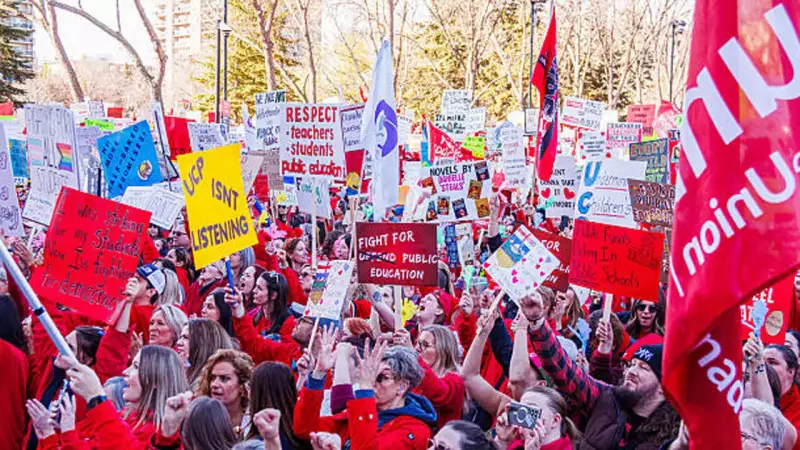
In a dramatic move that's sending shockwaves across Canada's labour landscape, the Alberta government has invoked the controversial notwithstanding clause to forcibly end a massive teachers' strike. This unprecedented action is raising alarm bells about workers' rights and could potentially ignite a much broader union backlash nationwide.
What Exactly Happened in Alberta?
The situation escalated when thousands of Alberta teachers walked off the job, demanding better working conditions and improved resources for students. After negotiations reached an impasse, the provincial government took the extraordinary step of using the constitutional notwithstanding clause to legislate teachers back to work.
This clause allows governments to temporarily override certain sections of the Canadian Charter of Rights and Freedoms, particularly those dealing with fundamental freedoms and legal rights. While technically legal, its use in labour disputes is highly controversial and rarely employed.
Why This Decision is So Controversial
The government's move has sparked intense debate across multiple fronts:
- Union Rights Under Threat: Labour leaders argue this sets a dangerous precedent for collective bargaining rights
- Charter Rights Override: Using the clause essentially bypasses constitutional protections for workers
- Future Implications: Other provinces might follow suit in similar labour disputes
- Teacher Morale: Forced return without addressing core issues could worsen the education crisis
The Looming Threat of Wider Union Backlash
Labour experts are warning that this decision could have far-reaching consequences beyond Alberta's education sector. Major union leaders across Canada are already expressing solidarity with Alberta teachers and threatening coordinated action.
"When you use the nuclear option on one union, you're essentially declaring war on the entire labour movement," noted one labour relations expert. "This could trigger sympathy strikes, increased militancy in other sectors, and a major political mobilization against the government."
What Comes Next for Alberta's Education System?
While the immediate strike has ended, the underlying issues remain unresolved. Teachers return to classrooms with the same concerns that prompted their walkout, potentially creating a tense and unstable learning environment.
The government's heavy-handed approach may have solved the short-term problem of school closures, but it has likely created longer-term challenges in teacher retention, morale, and the overall quality of education in Alberta.
As other provinces watch these developments closely, the Alberta situation could become a turning point in Canadian labour relations, testing the balance between government authority and workers' rights in ways not seen in decades.






